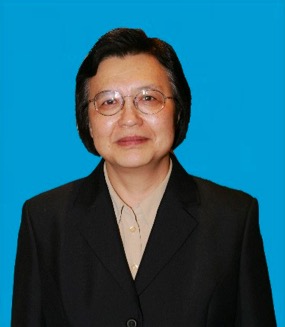Lin Li

Dr. Lin Li is the deputy director of Alzheimer’s Disease Institute, Beijing Institute of Brain Research; professor in Department of Pharmacology, Xuanwu Hospital of Capital Medical University; the director of Beijing Engineering Research Center for Nerve System Drugs; and the executive deputy director of Key Laboratory for Neurodegenerative Diseases of Ministry of Education of China.
Educational background and work experience
Dr. Lin Li graduated from Capital Medical University School of Medicine in 1975; worked as physician in a army hospital and Xuanwu Hospital of Capital Medical University from 1976 to 1985; got Master’s degree from Pharmacology Department of Capital Medical University in 1988; received Ph.D. degree from Pharmacology and Toxicology Institute of Military Medical Science Academy in 1991; worked as post-doc and research associate in Loma Linda University School of Medicine, USA from 1991 to 1994, the chair of Department of Pharmacology, Xuanwu Hospital of Capital Medical University from 1994 to 2014, the vice president of Xuanwu Hospital of Capital Medical University and the deputy director of Beijing Geriatric Clinical and Research Center from 1998 to 2009. She has worked as the deputy director of Key Laboratory for Neurodegenerative Diseases of Ministry of Education since 2005, and the director of Beijing Engineering Research Center for Nerve System Drugs since 2011. academia
Academic society position
Dr. Lin Li is the president of Beijing Pharmacology Society; the chair of Anti-aging and Senile Dementia Committee of Chinese Pharmacology Society; the chair of Expert Committee of Cognitive Impairment of Chinese Gerontology Society; and the member of International Association of Alzheimer’s Disease.
Research achievements
Dr. Lin Li’s research focuses on the pharmacological study and new drug development of traditional Chinese medicine (TCM) for the treatment of neurodegenerative diseases. As the principal investigator, she has been funded with about 20 research projects, published about 300 papers, and got 15 authorized invention patents. Her team has made substantial progress in developing new drugs for the treatment of AD, in which one drug has completed phase III clinical trial and obtained good results, and another drug is conducting phase III clinical trial. A new drug for the treatment of ischemic brain injury has completed preclinical study and is applying for IND (investigational new drug).
Awards
1. The Second Prize of National Science and Technology Award, conferred by the Sate Council of China (2013)
2. The First Prize of Science and Technology Award, conferred by Beijing Municipal Government (2005)
3. The Second Prize of Wu Jieping and Paul Janssen Award, conferred by Ministry of Public Health of China (2002)
Five representative publications
1. Lin Li*, Lan Zhang, Cui-cui Yang. Multi-target strategy and experimental studies of traditional Chinese medicine for Alzheimer’s disease therapy. Current Topics in Medicinal Chemistry, 2016, 16(5):537-548.
2. Cong Shen, Fang-ling Sun, Lan Zhang, Ru-yi Zhang, Lin Li*. Tetrahydroxystilbene glucoside ameliorates memory and movement functions, protects synapses and inhibits α-synuclein aggregation in hippocampus and striatum in aged mice. Restorative Neurology and Neuroscience, 2015, 33(4): 531-541.
3. Lan Zhang, Cong Shen, Jin Chu, Ruyi Zhang, Yali Li, Lin Li*. Icariin decreases the expression of APP and BACE-1 and reduces the β-amyloid burden in an APP transgenic mouse model of Alzheimer’s disease. International Journal of Biological Sciences, 2014, 10(2): 181-191.
4. Cui-cui Yang, Xue-xian Kuai, Ya-li Li, Li Zhang, Jian-chun Yu, Lin Li*, Lan Zhang*. Cornel iridoid glycoside attenuates tau hyperphosphorylation by inhibition of PP2A demethylation. Evidence-based Complementary and Alternative Medicine, 2013, 108486. doi:10.1155/2013/108486
5. Lin-lin Yin, Wei Li, Yan-qi Chu, Lin Li*. ERK pathway activation is required for amyloid-β1-40-induced neurotoxicity of THP-1 human monocytes towards SK-N-SH neuroblastoma. Brain Research, 2011, 1378:9-17

